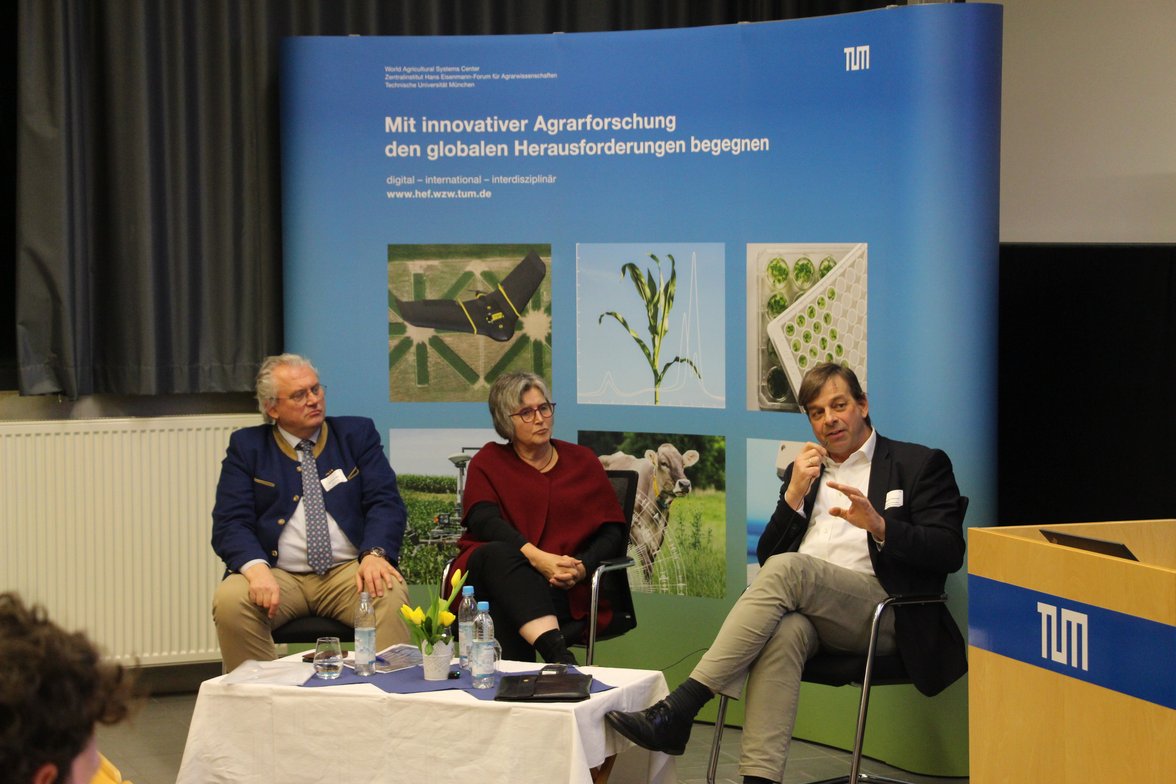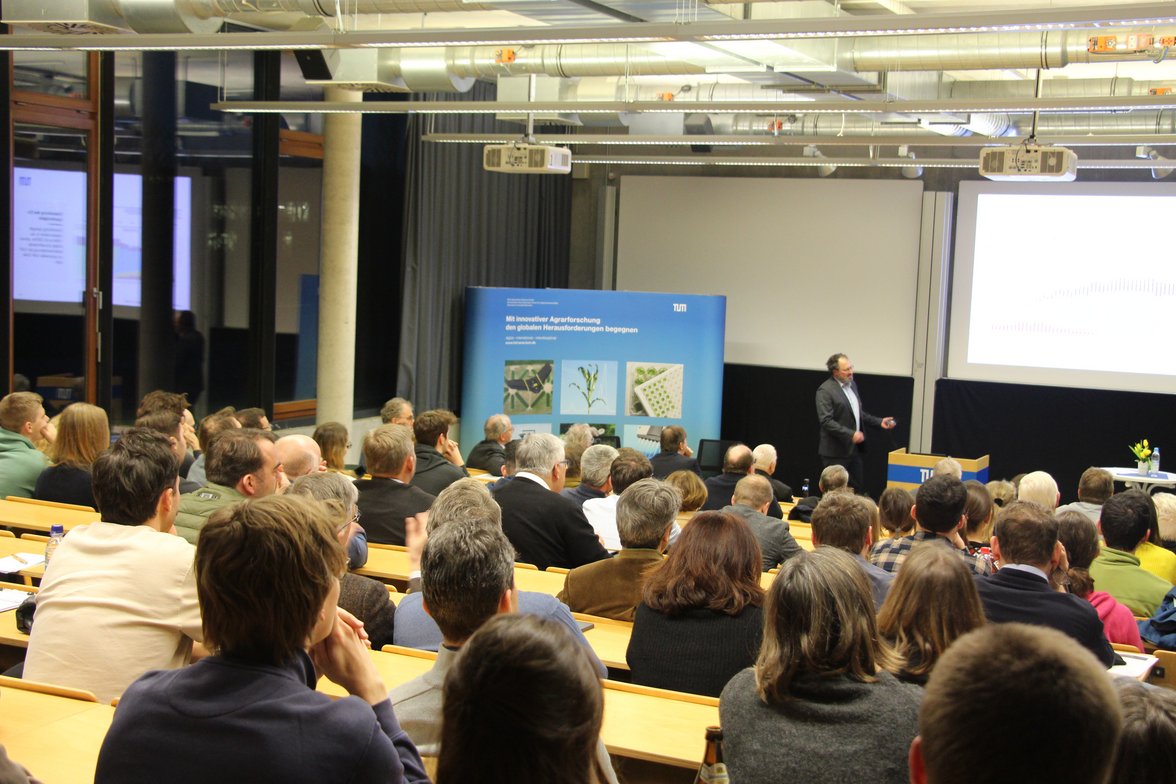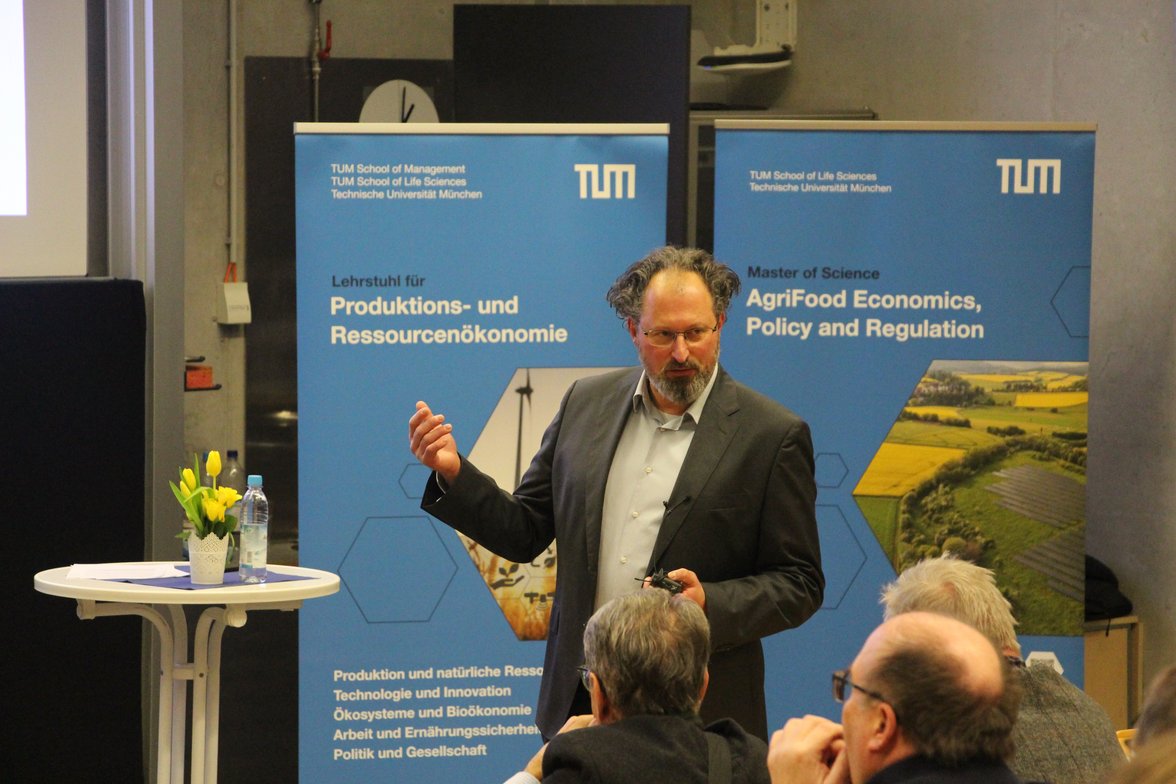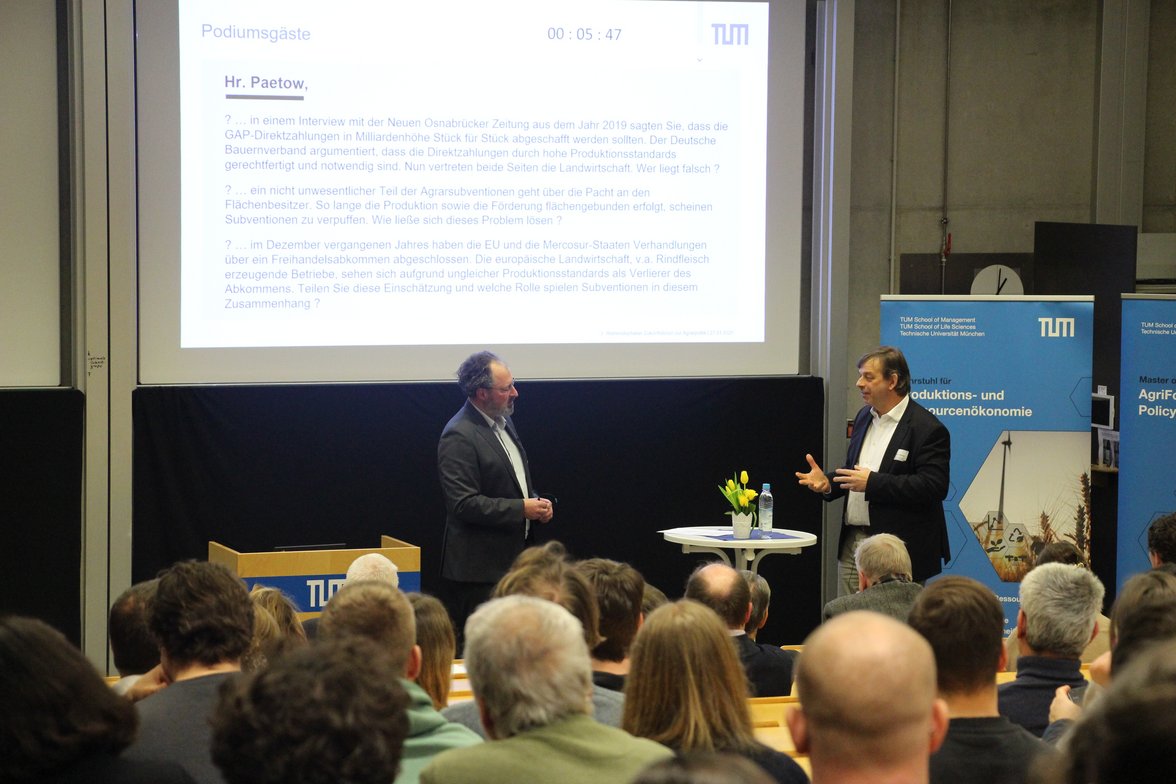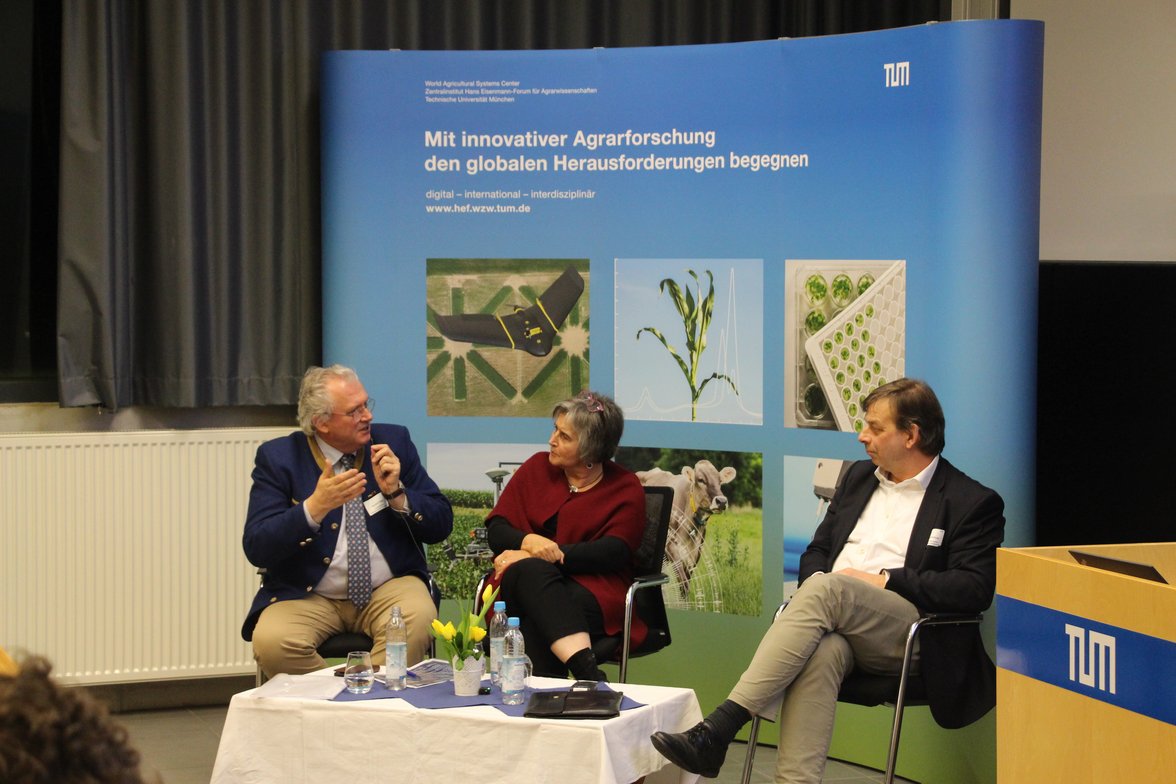Third Weihenstephan Future Forum: Perspectives on subsidies and agricultural policy
Event |
“Bringing depth to the discussion”
First, Johannes Sauer introduces the topic with figures: “Agriculture is one of the most subsidized sectors in Germany. Over €12 billion flows into agriculture from EU, federal and state subsidies. At the EU level, around 31% of the total budget is earmarked for agricultural spending in 2021-2027.”
However, the Professor of Production and Resource Economics emphasises that it's not just about numbers: “We don't just want to observe, but also understand and discuss - we want to bring depth to the discussion.”
Multi-layered perspectives
Each panel guest had ten minutes to answer Johannes Sauer's questions in individual discussions.
Maria Noichl, a member of the SPD in the European Parliament, was the first to join Johannes Sauer on the podium. She emphasised that agricultural policy should not be viewed in isolation. Agricultural issues are closely linked to other areas and are not only discussed within agricultural policy. This should not be ignored when evaluating agricultural policy measures.
The second panel guest was Hubertus Paetow, President of the German Agricultural Society. “We are all looking for ways to achieve sustainable agriculture. International agreements can help here. They can lead to a fair and equal market for all, for example, by standardising product requirements,” he explained when asked about European trade agreements.
Finally, Michael Jäger, Vice President of the Taxpayers' Association, was invited to the front. He appealed for cooperation on climate protection. He said it is a common concern to protect the climate, and we must act together to achieve this. Agriculture often bears the most significant burden: “This does not require punishment, but rather a system of incentives.” Research and innovation are also key factors here.
What are subsidies based on?
The question of subsidies was discussed intensively in the subsequent audience discussion. The participants agreed that a reorientation of subsidies was necessary. The panellists argued for results-oriented rather than area-based subsidies, which could respond more flexibly to the different requirements of agriculture. In this way, not only yields but also environmental targets could be measured to promote the diversity of agricultural production.
“What would happen if subsidies were dropped at the federal level?” asked an audience member. The panellists answered this question by highlighting the different responsibilities of the political levels. Agricultural policy at the European level should be understood as the basic policy regulation - an articulation of shared objectives, such as climate protection. Maria Noichl pointed out that measures can be decided on a country-specific basis at the national level.
Disagreement on the preservation of subsidies
The panel guests disagreed on the fundamental question of maintaining subsidies for agriculture in Germany. Michael Jäger spoke of a gradual abolition. “This won't happen overnight. Agricultural businesses must be given a clear timetable.”
Johannes Sauer summarised: “Whether subsidy-free agriculture is conceivable and feasible also depends on the scope of the subsidies. The panel guests discussed the complexity of agricultural policy: agricultural issues are reflected in other sectors and address challenges for society as a whole, such as climate change. The solutions are, therefore, no less complex. A subsidy-free agriculture would need sensible alternatives that take over the market-regulating function. The third question, whether subsidy-free agriculture is desirable, depends on these alternatives.”
About the Future Forum
Observe, understand, join in the discussion - this is how Prof. Johannes Sauer sums up the aim of the series of events. With the forum, he wants to create a space for professional discussion, facilitate access to scientific findings and impart knowledge.
Prof. Senthold Asseng, Scientific Director of the HEF, emphasizes: “The HEF supports such formats in which discussions are held with society.” In addition to the Weihenstephan Future Forum, the HEF also offers formats such as the Hans Eisenmann Academy.
